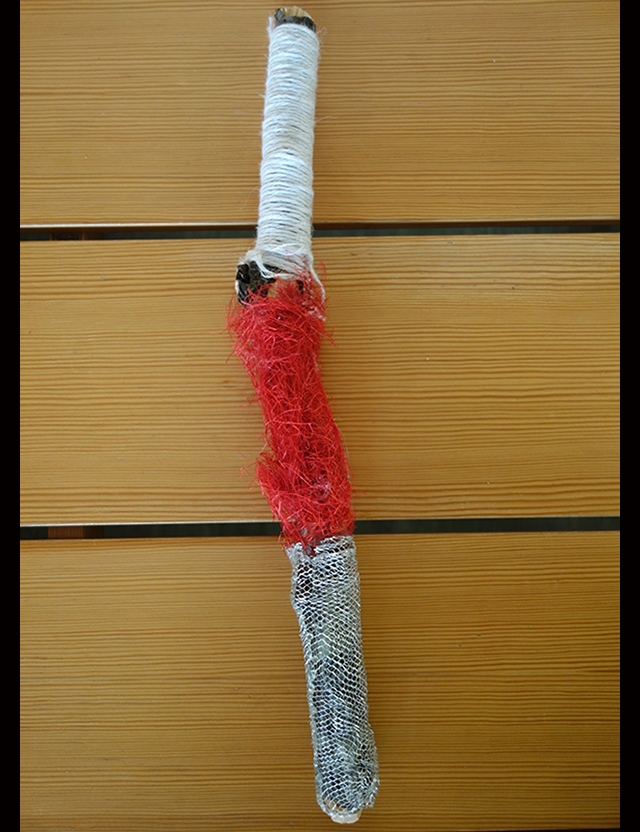
Would you like to analyse and improve the possibilities of deafblind people? Then this is the programme you are looking for!
The part-time programme is identical to the full-time programme, but is divided over two years. You will find the exact division of courses on this page once the programme for 2025/2026 is set.
| Semesters | ||||
|---|---|---|---|---|
| VakkenVakkencatalogus > | 1a | 1b | 2a | 2b |
| Introduction to Deafblindness (5 EC) | ||||
| Theories and Models (5 EC) | ||||
| Internship (20 EC) | ||||
| Semesters | ||||
|---|---|---|---|---|
| VakkenVakkencatalogus > | 1a | 1b | 2a | 2b |
| Master thesis (20 EC) | ||||
| Qualitative Research methods (5 EC) | ||||
| Participation and Policy (5 EC) | ||||
| Specifieke eisen | Extra informatie |
|---|---|
| vooropleiding |
|
| minimum kennis |
Sufficient courses on:
Previous experience with academic writing (e.g., Bachelor thesis), is desirable, but not an entry requirement. |
| Vooropleiding | Organisatie | Instroom |
|---|---|---|
| Alle WO-instellingen | Via een pre-master van maximaal |
|
| Pedagogische Wetenschappen | Alle WO-instellingen |
Drempelloze toelating Extra informatie:The admissions committee will assess whether you are admissible with your previous education. |
| Vooropleiding | Organisatie | Instroom |
|---|---|---|
| Pedagogische Wetenschappen | Rijksuniversiteit Groningen | Drempelloze toelating |
| Type student | Deadline | Start opleiding |
|---|---|---|
| Nederlandse studenten | 01 juni 2026 | 01 september 2026 |
| EU/EEA studenten | 01 juni 2026 | 01 september 2026 |
| non-EU/EEA studenten | 01 mei 2026 | 01 september 2026 |
| Specifieke eisen | Extra informatie |
|---|---|
| vooropleiding |
|
| minimum kennis |
Sufficient courses on:
Previous experience with academic writing (e.g., Bachelor thesis), is desirable, but not an entry requirement. |
| taaltoets cijfer |
The official language of the programme is English. Non-native English speakers must provide evidence of satisfactory results for one of the standard tests mentioned below. Official test results must be supplied. Please note, we do not accept Institutional TOEFL results as evidence of English proficiency. IELTS: overall 6.5; writing 6.5; speaking 6.5 | TOEFL internet-based: overall 90; speaking 22; writing 24 | CAE / CPE: C, B or A | Dutch pre-University diploma (VWO) including English: 5.5 for English | |
| Type student | Deadline | Start opleiding |
|---|---|---|
| Nederlandse studenten | 01 juni 2026 | 01 september 2026 |
| EU/EEA studenten | 01 juni 2026 | 01 september 2026 |
| non-EU/EEA studenten | 01 mei 2026 | 01 september 2026 |
After graduation, you have the knowledge and skills needed to work in the field of education related to deafblindness. This programme gives you a good basis for consultancy work in education and for further research.
Apply expertise in assessment and intervention tools within a clinical and educational setting in inclusive and special needs education or related fields, for example in complex communication needs such as autism, mutism, and Profound Intellectual and Motor Disabilities (PIMD).
Establish and manage an independent practice to serve diverse client needs.
Conduct scientific research or pursue a PhD to advance knowledge and practice in the field.
The Master programme Deafblindness is linked to the Research Centre on Profound and Multiple Disabilities.
